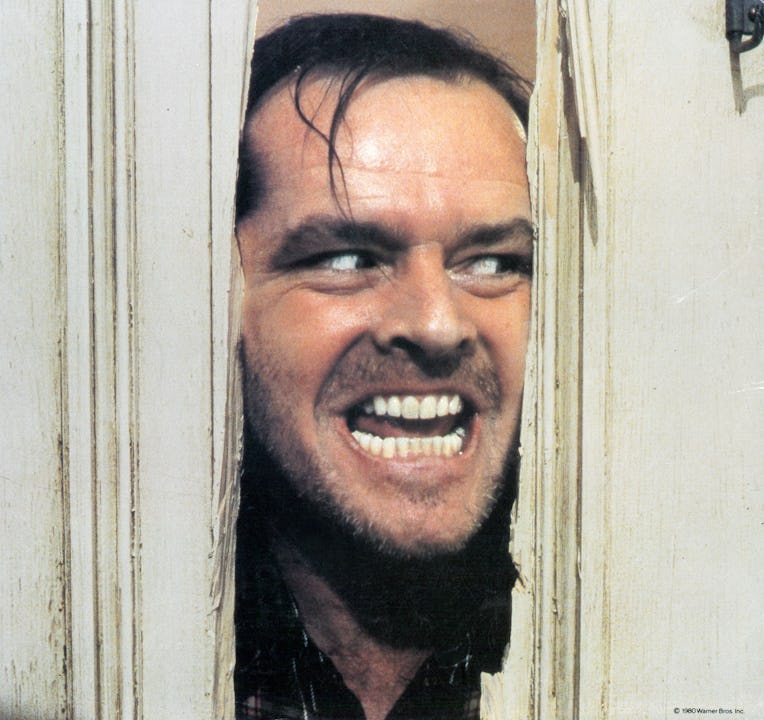Stanley Kubrick’s The Shining is, among other things, about being bored in large, empty spaces. Perhaps this might be why it reminds me so much of home and why I’ve made a habit of watching it every year on Thanksgiving.
My family — both sides, Filipino and Black — has always exalted this particular holiday by rote, as an excuse to get together from far-flung places and act like Thanksgiving food is good. That said, I’ve never had much reverence for Thanksgiving. It overshadows Halloween, the true fall holiday, only to then succumb to the commercial onslaught of Christmas and it’s maniacal rotation of cheerful songs. Most of the Thanksgivings from my childhood, pleasant in a muted, sleepy kind of way, blur together in my memory: red, orange, and brown table settings, the scent of Pillsbury croissants (butter), a fine layer of dust on the dining table that never got used much the rest of the year, television buzzing in the background.
If you subscribe to the idea that the last Thursday in November is supposed to be marked with generational tension and uncomfortable silences, racist outbursts and old grudges, bored children and the background noise of a football game, I can't think of a better movie than The Shining to get you through the finish line. It’s a tale as old as time: an alcoholic father and husband named Jack who’s struggling through a bout of writer’s block looks after a ski lodge on its off-season, bringing along his loving wife Wendy and their psychic son, Danny. Danny has an imaginary friend named Tony who lives inside his index finger and speaks like Christian Bale’s Batman, giving portentous warnings about the evil that resides in the lodge. Wendy is trying to forgive Jack for breaking Danny’s arm in a drunken rage. The family spends a long winter at the Overlook Hotel, Jack slowly torturing himself through the creative process while being unwittingly seduced by malevolent forces. Wendy is simultaneously bored out of her mind and worried about Jack’s health. And Danny’s riding on his toy bicycle running into dead twins and waterfalls of blood.
There are an infinite number of ways to think about The Shining, the more delusional of which are laid out in the documentary Room 237, but the more I’ve watched it, the more it seems almost tailor-made for the entire month of November. The onset of winter, the slow anticipatory hours that bleed into days, those small, half-insane giggles to yourself when you’re alone wrapped up in a blanket on the couch, the twee fantasy of colonial and indigenous harmony coating over a roiling, setting anger. The Shining is one of the greatest mood pieces of all time, sustaining a drawn-out, sinister dread that almost veers into a kind of cinematic white noise. Often, it’s funny and a little hammy, drifting along on a Benadryl-induced lethargy until you get to a scene like the one where Jack is in the red bathroom with butler Delbert Grady, who suddenly breaks out the N-word multiple times or the bar scene where Jack refers to alcoholism as the white man’s burden.
Thanksgiving is often uncomfortable. Even my best memories of it from when I was a kid are seeded with an undercurrent of impatience and the terror that I’ll be stuck making small talk with family friends or distant relatives. Something similar, but with far higher stakes, is communicated in The Shining. All the same elements — forced familial interaction, too much food, people sneaking away from the fray, pilfered Native American aesthetics — are slathered with pregnant pauses and apprehension. Which all gives way to the best part of any terrible holiday, or any truly terrifying horror movie: the bitter end.
